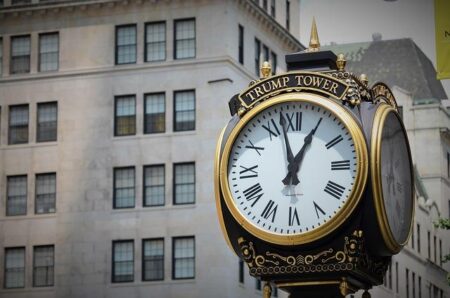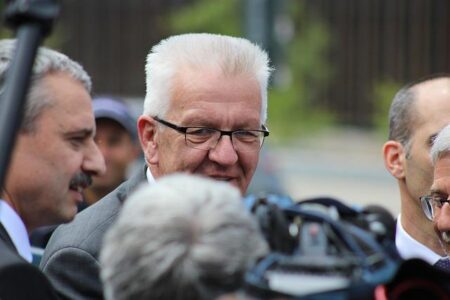Germany must now “look soberly” at its national interests as global tensions rise, officials caution. This signals a bold shift toward a more pragmatic foreign policy-one that skillfully balances security challenges with economic priorities
Browsing: foreign policy
Russia has enthusiastically embraced the new US security strategy, praising its close alignment with Moscow’s vision for global stability. This promising development suggests a potential easing of tensions amid ongoing geopolitical challenges, reports the BBC
Beijing has urged Germany to steadfastly uphold the one-China principle as its top diplomat sets out on a pivotal two-day visit, emphasizing the urgent importance of respecting China’s sovereignty amid rising geopolitical tensions
Chinese Vice President met with German Foreign Minister to explore exciting new opportunities for strengthening bilateral ties and enhancing cooperation on global challenges, according to Global Times. Both leaders emphasized the power of mutual respect and shared goals in driving their partnership forward
The U.S. Department of State applauded Spain’s bold move to repatriate displaced persons from Northeast Syria, highlighting how international teamwork can drive impactful solutions to pressing humanitarian and security crises
Russian President Vladimir Putin meets Indian Prime Minister Narendra Modi in Delhi to deepen strategic partnerships, enhance energy collaboration, and tackle regional security challenges amid shifting global alliances
Amid the unyielding conflict, Russia’s path to peace teeters on a knife’s edge. Experts caution that escalating economic hardships, intensifying global pressure, and swelling internal unrest may all influence Moscow’s willingness to entertain a ceasefire
The U.S. has reportedly hit the pause button on plans to sanction a Chinese spy agency, all to safeguard the fragile trade truce, according to sources cited by the Financial Times. This strategic move aims to keep tensions from boiling over during these delicate negotiations, Reuters reveals
Morocco and Spain are gearing up for their 13th high-level meeting, promising to strengthen their partnership, ignite economic growth, and address critical regional security issues, officials confirmed Tuesday
China has urged the UK to steadfastly uphold the “one-China” principle, emphasizing the vital importance of respecting its sovereignty over Taiwan. This call comes amid rising tensions in the region, Reuters reports
The UK is boldly redefining its foreign policy, striving to assert greater independence from the US amid shifting global dynamics. This move underscores London’s determination to expand its alliances and champion a unique strategic vision, experts at the Chicago Council on Global Affairs reveal
Brazil’s multi-alignment strategy unfolds as a masterful dance in global diplomacy, expertly balancing ties with the world’s major powers. Is this a clever play rooted in national interest, or just opportunism wearing the mask of ideology? Modern Diplomacy digs beneath the surface to reveal the real story
China has urged the UK to strongly reaffirm its commitment to the “One-China” principle, as tensions over Taiwan reach new heights. Beijing emphasizes that honoring its sovereignty claims is more important now than ever before
Secretary Rubio is embarking on an exciting diplomatic journey to Israel, Qatar, and the United Kingdom, with a mission to strengthen alliances, confront regional security challenges directly, and expand economic partnerships, the U.S. Department of State announced
The UK’s E4 statement on the West Bank underscores the urgent need to reduce tensions and protect civilians amid escalating conflicts. It calls for a renewed dedication to dialogue, paving the way toward lasting peace
Former President Trump has unveiled a bold 28-point plan aimed at ending Russia’s war in Ukraine, blending diplomacy, economic tactics, and security guarantees. This provocative proposal is igniting debate with its unconventional path to peace
Iran’s Foreign Minister is set to visit France this week for pivotal talks aimed at boosting bilateral relations and tackling pressing regional issues. This trip highlights the vibrant diplomatic momentum driving the future of the Middle East
Tensions are skyrocketing as China and Japan intensify their fierce rivalry over trade and security, with former President Trump’s policies igniting an already volatile geopolitical fire. This mounting conflict is setting the stage for a high-stakes showdown that could redefine the future of the Asia-Pacific region
India and Italy are deepening their connection following an inspiring meeting with Prime Minister Giorgia Meloni. This growing strategic partnership promises to open thrilling new avenues, enhancing collaboration and delivering mutual benefits for both nations
The US has firmly dismissed claims that its newly unveiled Ukraine plan is a Russian “wish list,” boldly affirming that the strategy was developed independently. This statement aims to dispel any doubts amid escalating geopolitical tensions




















